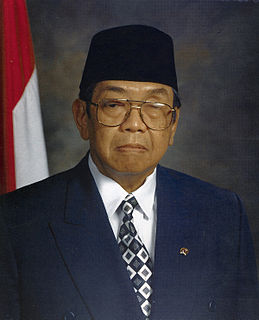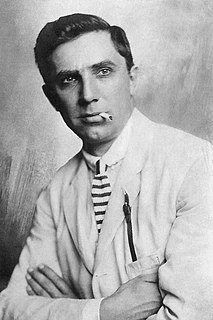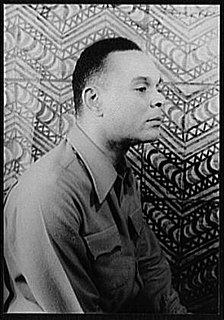A Quote by Ambrose Bierce
PANTOMIME, n. A play in which the story is told without violence to the language. The least disagreeable form of dramatic action.
Related Quotes
Freed from the sublimated form which was the very token of its irreconcilable dreams - a form which is the style, the language in which the story is told - sexuality turns into a vehicle for the bestsellers of oppression. ... This society turns everything it touches into a potential source of progress and of exploitation, of drudgery and satisfaction, of freedom and of oppression. Sexuality is no exception.
I like poetry, but honestly, I like dramatic literature more. If I had to pick between Rumi and Dostoevsky, I would pick Dostoevsky without even thinking about it. Ninety-nine out of 100 Iranians would probably pick Rumi. Kiarostami, too, would probably pick Rumi first. I try to have the meaning be in the action of the story, not in the symbolism. I want it to be in the action, and it's dramatic action that creates the meaning.
Plays are literature: the word, the idea. Film is much more like the form in which we dream - in action and images (Television is furniture). I think a great play can only be a play. It fits the stage better than it fits the screen. Some stories insist on being film, can't be contained on stage. In the end, all writing serves to answer the same question: Why are we alive? And the form the question takes - play, film, novel - is dictated, I suppose, by whether its story is driven by character or place.
You see, for me a painting is a dramatic action in the course of which the reality finds itself split apart. For me, that dramatic action takes precedence over all other considerations. The pure plastic act is only secondary as far as I'm concerned. What counts is the drama of that plastic art, the moment at which the universe comes out of itself and meets its own destruction.
Ambivalence reaches the level of schizophrenia in our treatment of violence among the young. Parents do not encourage violence, but neither do they take up arms against the industries which encourage it. Parents hide their eyes from the books and comics, slasher films, videos and lyrics which form the texture of an adolescent culture. While all successful societies have inhibited instinct, ours encourages it. Or at least we profess ourselves powerless to interfere with it.
Some people draw a comforting distinction between force and violence. I refuse to cloud the issue by such word-play. The power which establishes a state is violence; the power which maintains it is violence; the power which eventually overthrows it is violence. Call an elephant a rabbit only if it gives you comfort to feel that you are about to be trampled to death by a rabbit.

































